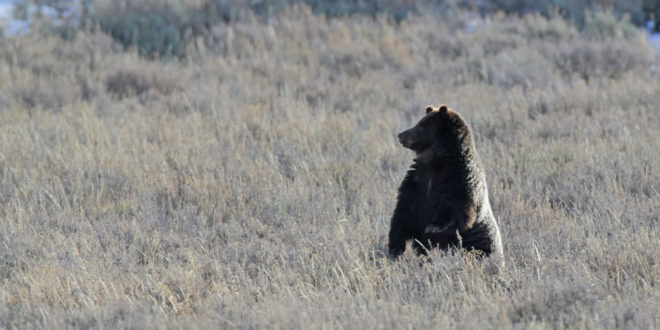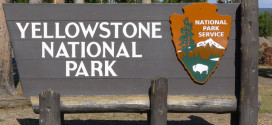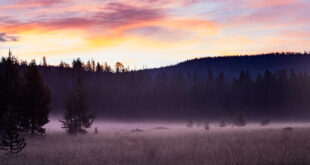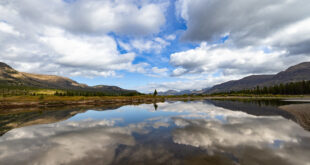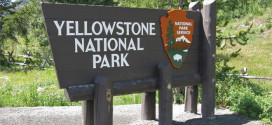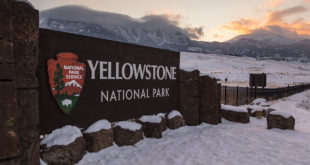Last week, National Park Service biologists trapped and killed a bear near Heart Lake in Yellowstone National Park.
According to a Yellowstone press release, the bear (an “immature, male grizzly”) had repeatedly come into conflict with backcountry campers and hikers.
This is the first bear put down in Yellowstone National Park since 2015, when a grizzly sow was trapped and euthanized after killing a hiker near Yellowstone Lake.
According to the press release, the Heart Lake bear had been on the NPS’ radar since 2015. After “exhibiting bold behavior around people,” Wyoming Game and Fish personnel relocated the bear to Caribou-Targhee National Forest just west of the park. Personnel also tagged the bear.
In 2016, the bear was observed entering campsites around Heart Lake, destroying tents and sleeping bags. According to the press release, NPS staff tried to change the bear’s behavior by luring it to decoy tents and hazing it with beanbag rounds, rubber bullets and cracker shells. NPS staff also attempted to trap and relocate the bear, which reportedly failed.
Late August 2017, hikers once again reported the bear investigating campsites around Heart Lake. On August 26, the bear forced three backpackers out of their campsite and ate their food. In response, officials closed the Heart Lake area to backcountry camping and set traps for the bear.
NPS staff captured and killed the bear the morning of September 8, 2017.
NPS policy mandates any bear that becomes overly accustomed to human presence—or comes to view them as a source of food—must be relocated to avoid conflicts. Trapping and killing is generally a last resort measure.
Visitors in Yellowstone National Park must keep at least 100 yards away from animals like bears and wolves. If you come across a bear while hiking, it’s best to back away slowly, no matter how far away they are. A bear will give you many signs that you’ve come too close—sticking out its lips, huffing, woofing, slapping the ground. In addition, always carry bear spray; if a bear charges, it’s your first line of defense and the surest way that you and the bear will walk away from encounter unscathed.
There are several measures you can take while hiking to cut down on your chance of bear encounter. Stay on maintained trails, hike in groups, make noise, avoid carcasses, and always hike after dawn/before dusk. Night hikes should be avoided at all costs.
If you’re camping in the backcountry, make sure all your food is stored in bear resistant food containers or hung from food poles (rope not provided). Bears have a strong sense of smell, which is why they’re attracted to untidy camps or improper food storage systems. If you find bear signs (tracks, scat) in the vicinity of your campsite, don’t camp there. You can learn more about camping etiquette here.
 Yellowstone Insider Your Complete Guide to America's First National Park
Yellowstone Insider Your Complete Guide to America's First National Park
